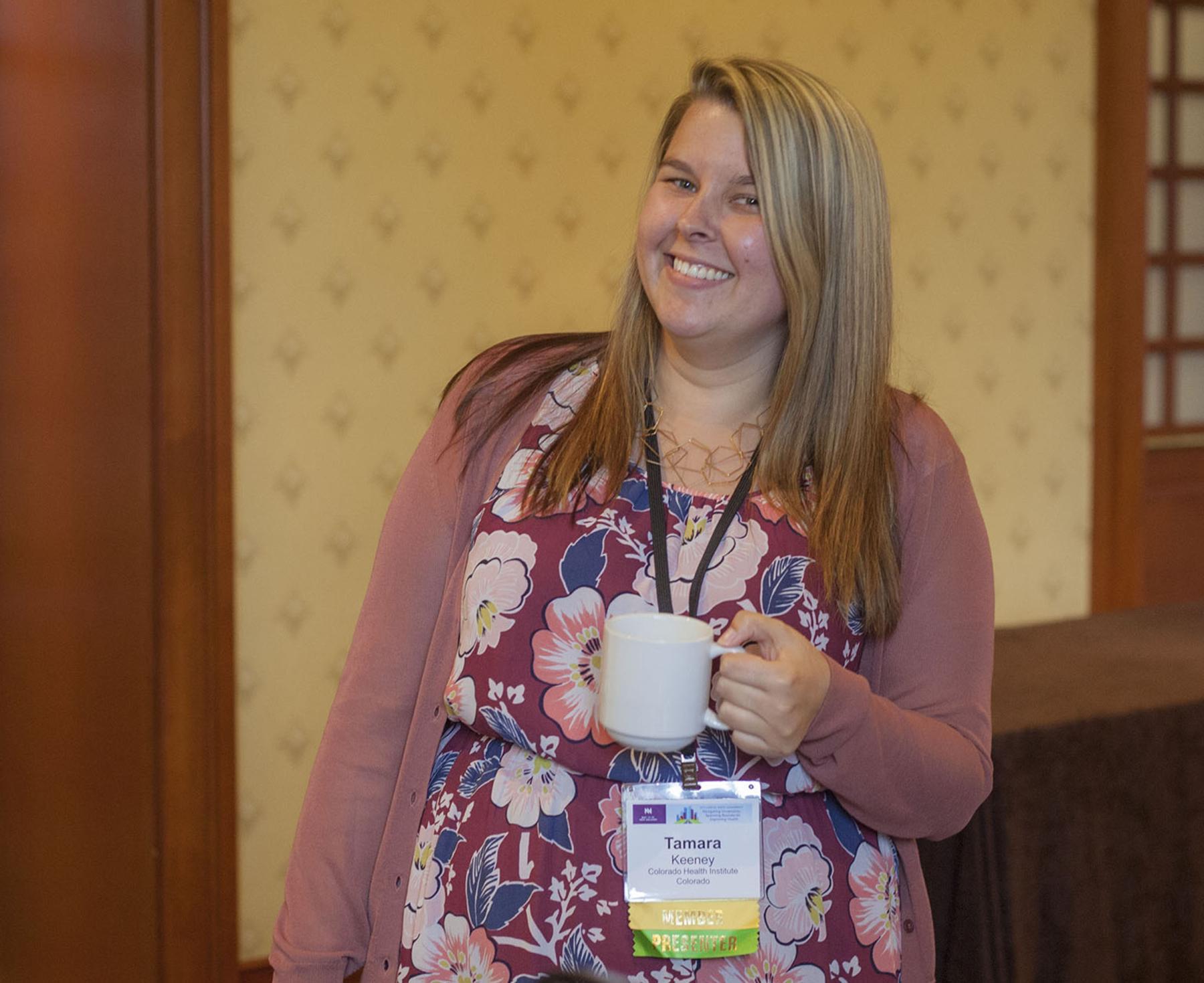Four Years at CHI: Three Titles, 60 Presentations, Two Broken Bones and Too Much Popcorn

I found my job at the Colorado Health Institute by typing “health policy Colorado” into Google.
CHI was the first search result. And in August 2013 it was looking for a research assistant.
The job description fit my skill set, and CHI seemed like the type of organization I wanted to work for. Most importantly, I had the same positive gut reaction that brought me from Boston to Denver after visiting my best friend at the University of Denver months earlier.
It’s been nearly four years since that lucky Google search.
As I write this, it is my last day at CHI before I leave Denver to pursue my master’s degree at the LBJ School of Public Affairs at the University of Texas Austin. While packing up to hit the road for the Lone Star state (and 104 degree weather), I’ve been reflecting on my time at CHI. These include moments that can be measured in numbers as well as experiences that can’t be quantified.
First, some notable numbers.
Three: Titles I’ve had while at CHI. I started as a research assistant in 2013, became a research analyst in 2014 and have been a policy analyst since 2016.
60: A rough estimate of presentations I’ve given. Highlights include presenting in a beautiful church in Park Hill, giving a presentation “in the round” at the School of Medicine’s Fulginiti Pavilion and talking about federal health care reform at a bar in Fort Collins.
Two: Broken bones while I’ve been a CHI employee. A slip on the ice in 2015 resulted in a broken foot – and an in-depth study of how the health care system really works. Last summer, in a much more dramatic fashion, I broke my elbow after falling from a float in the gay pride parade (while Lance Bass of N*SYNC fame watched in horror).
Infinite: The amount of popcorn I consumed.
As a CHIer, I love numbers. But there are experiences I’ve had while at CHI that aren’t as quantifiable, including all of the lessons I’ve learned. Here are five highlights.
Values + experiences = policy lens
Over my four years here, I’ve had the opportunity to travel around Colorado to give presentations and conduct focus groups. These experiences allowed me to enjoy our state’s varying landscapes and learn about the concerns of Coloradans in different regions. Facts and data are useful in these conversations, but what is equally important is understanding values and experiences. Data can only take you so far without truly listening to what has shaped a person’s outlook.
“Well, it depends.”
I don’t think I’ve ever heard the phrase “well, it depends” as much as I have at the CHI office. CHI has taught me to think critically, ask questions and embrace the nuances in data and analyses. Timeframes, sources, funders, methods — all matter. I’ve learned that few things are as simple as they seem, and often, even when you think you’ve answered a question, you may find yourself having to add the caveat that “well, it depends.”
Follow the money.
Vice President Amy Downs once told me that if you don’t understand who gives the money and who gets the money, you don’t have a clear picture of health care. I agreed, but was initially unsure of my own abilities to understand health care costs. Through projects like the research CHI conducted on behalf of the Colorado Commission on Affordable Health Care, I’ve learned that Amy was (of course) correct. Health care funding is complicated, but a basic understanding of how much care costs and who foots the bill is critical to understanding — and improving — the health care system.
Behavioral health policy is unique.
Most of my time at CHI has been spent researching and writing about behavioral health. As with any policy area, there is an extraordinary amount to learn about the data, literature, programs and policies that support the behavioral health system. However, I’ve learned that the persistent stigma around mental health and substance use continues to complicate advancement in ways that set it apart from other policy areas.
And, finally, teamwork makes the dream work. I am extremely thankful for my colleagues at CHI, who are brilliant and funny, caring and dedicated to making the world a better place. From “millennial boulevard” to the “communications corner,” the CHI office is filled with people who have the talent and the wit to solve health care’s most complex questions.
I can’t wait to see what they do next.
